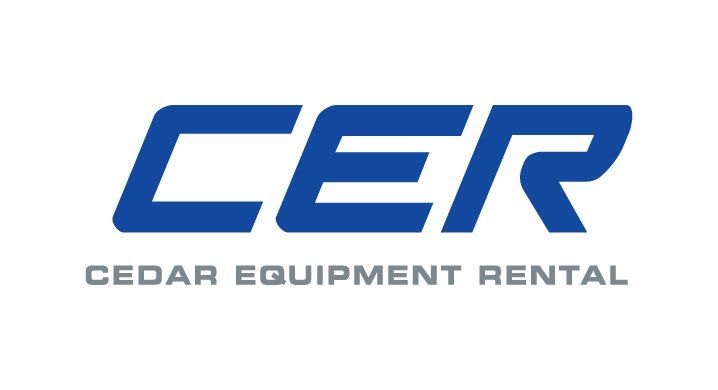CHAMBER COMMUNITY PARTNERS
Legacy Partners
Visionary Partners
American Pacific has been producing high quality specialty chemicals for over 60 years, principally oxidizers. We provide the oxidizer used in solid rocket motors for space launch vehicles and national defense application. We also produce clean fire extinguishing agents for the fire protection industry, and sodium azide for the pharmaceutical industry and various other industries. Out products are designed to meet customer specifications and often must meet governmental and regulatory approvals. Our headquarters and state-of-the-art manufacturing facilities are located in Southern Utah, with administrative support in Nevada.
Iron Springs Adventure Resort
Iron Springs Adventure Resort is the perfect destination for your outdoor activities. Whether you're visiting the Southern Utah national parks, the many festivals and events, or taking advantage of the resort's close proximity to Three Peaks recreational area, Iron Springs Resort is the perfect place to stay. Located only a couple of miles west of downtown Cedar City, the resort has an isolated rustic feel yet is only a short drive to downtown restaurants and shopping.
Presidential Partners
Cedar City Corporation
The Cedar City website is your one stop shop for all things Cedar City. Visit them for employment opportunities, festivals and events, business licenses, Leisure Services, Public Works, Economic Development, and more.
Cedar City is the largest city in Iron County, Utah, United States. It is located 250 miles south of Salt Lake City, and 170 miles north of Las Vegas on Interstate 15. It is the home of Southern Utah University, the Utah Shakespeare Festival, the Utah Summer Games, the Neil Simon Theatre Festival, and other events.
Cedar Band Corporation
In early 2002, a local IT company looking for a Native American partnership approached the Cedar Band of Paiutes. The Band researched the opportunity … but the company went out of business. Still compelled at the possibility of joining a burgeoning industry, the Band soon after created Suh’dutsing Technologies(SDT), the first company of Cedar Band Corporation (CBC)
Suh’dutsing Technologies obtained help through the state of Utah and formed a Mentor-Protégé partnership, receiving a $3,400 grant from Southern Utah University (SUU) Rural Development for marketing and $4,000 cash start-up money from the tribe.
Immediately, key staff marketed Suh’dutsing Technologies in October of 2003 by knocking on the doors of federal agencies and IT companies in Washington D.C.
At the March 2004 Reservation Economic Summit (RES) Conference, Suh’dutsing Technologies conducted a presentation in front of about 20 representatives from various federal agencies.
From that presentation, Suh’dutsing Technologies landed their first contract: An Indefinite Delivery, Indefinite Quantity (IDIQ) with the Department of the Interior (DOI).
This was the contract that jump-started our success.
That September, SDT staff started putting hardware and software equipment task orders against the IDIQ contract.
From our modest beginnings as a single IT company with one contract, CBC today includes not only Suh’dutsing Technologies, but three other branded companies: Suh’dutsing Telecom, Suh’dutsing Staffing Services, and Suh’dutsing & Tikigaq (S&T) Services.
Headquartered in Cedar City, Utah—and regional offices in Washington D.C., Maryland, and Ohio—these four enterprises employ over 160 employees with total revenue of over $53 million in fiscal year 2010. The CBC family of companies has filled critical needs in a variety of service areas, with a focus on helping clients achieve profitability and growth by improving their ability to understand and manage their customers and partners.
Working with CBC benefits an entire tribal community. Profits from CBC operations are “plowed back” into the tribal community, producing employment opportunities and fostering support for socioeconomic programs.
Cedar City News/ Canyon Media
St. George News, including STGnews.com, StGeorgeUtah.com, Cedar City News and CedarCityUtah.com, a Canyon Media company, provides comprehensive and interactive news services focusing on matters of relevance to the communities of Southern Utah. Our coverage includes news, sports, community and civic events, opinion, lifestyle, business and other matters of concern and interest to the community that our readers can trust and enjoy. St. George News offers provocative and engaging opinion and advice columns, feature series and shows. We engage the opinions and interaction of our community of readers through letters to the editor, comment forums and submitted feature material as well as sponsored content.
Cherry Creek Media is the country's premier small market radio, events and digital marketing company.
Our 53 radio stations serve their local markets in the Rocky Mountain Region, Upper Midwest, Northwest and Southwest. Each year we promote incredible events that allow attendees to connect directly with businesses. Cherry Creek Media websites and digital teams provide cutting edge, targeted, turn-key digital programs for our advertising partners.
Above all, we're focused on serving the needs of our markets' listeners, advertisers and team members.
The Coca-Cola Company
(NYSE: KO) is the world's largest beverage company, refreshing consumers with more than 500 sparkling and still brands and nearly 3,900 beverage choices Download infographic (PDF). Led by Coca-Cola, one of the world's most valuable and recognizable brands, our company’s portfolio features 21 billion-dollar brands, 19 of which are available in reduced-, low- or no-calorie options. These brands include Diet Coke, Coca-Cola Zero, Fanta, Sprite, Dasani, vitaminwater, Powerade, Minute Maid, Simply, Del Valle, Georgia and Gold Peak. Through the world's largest beverage distribution system, we are the No. 1 provider of both sparkling and still beverages. More than 1.9 billion servings of our beverages are enjoyed by consumers in more than 200 countries each day.
Evans Hairstyling College
There is no better place to learn cosmetology. We are teaching the skills to be professionals in the field. You will learn to be the best at your practice, gain confidence, and the skill to get the job you really want. You are career-minded and want to pursue your education in cosmetology. Welcome to your new school! Admission to Evans Hairstyling College is available to any person who is a career-minded person and wants to pursue an education.
Grifols is a global healthcare company with more than 13,000 employees in 25 countries working together to improve people's health and well-being. We produce and market life-saving, plasma-derived medicines, diagnostic systems and hospital pharmacy products that are used to treat patients in more than 100 countries worldwide.
On Purpose Marketing
With years of experience, our staff has the capabilities and expertise to take your brand awareness to the next level.
While you know your company inside and out, we know how, where, and when to share your story to produce tangible results. Our marketing strategy team works with you to share your brand's voice, one that resonates with you and your target audience.
Our company dates back to 1881, when Salt Lake City became the fifth city in the world to have central station electricity. Utah Power & Light (UP&L) was formed in 1912 from several small electric companies in Utah, Idaho and western Colorado. Working closely with state and local partners, we help communities enhance their economic vitality – attracting top companies and high-paying jobs. We own and operate several public recreation facilities along our hydroelectric projects. Enjoy camping, picnicking, boating, fishing and scenic views.
Southern Utah University is a caring campus community where students come to explore their interests and prepare for meaningful careers and life experiences. With more than 140 undergraduate and 19 graduate programs across six academic colleges, SUU proudly offers world-class, project-based learning opportunities where students gain professional experience before entering the job market.
Located in the world’s best backyard, SUU is the University of the Parks thanks to its close proximity to several outdoor recreational areas and its educational partnerships with the National Park Service. SUU’s safe, residential campus allows students (over 9,000) to create lifelong friendships along with once-in-a-lifetime outdoor adventures in conjunction with innovative academic endeavors.
Our goal at Southwest Technical College (Southwest Tech) is to show you how to gain the technical skill levels and work habits required for success in today’s dynamic workforce. We develop programs with on-going involvement from our business and industry partners and quickly adapt as the workplace and business environment changes. Many of our programs are self-paced and competency based, providing individualized instruction.
Come be part of the Southwest Tech family and the education and experience you gain will lead to both personal and professional growth.
We are a one-stop source for answers to your business questions. With our partners, we are prepared to offer extensive resources, coaching, and business expertise that will help you fulfill your business pursuits. Meeting with a counselor is free. Our purpose is to help build our local economy by helping your business grow and go! Starting and running a business isn’t easy, and we can help you in many ways.
Triple S Polaris-Cedar City
How do we stay small and sell big? It's simple: years of experience. At Triple S Polaris, our mission is to offer you the latest in parts and products, at the best prices, and with unparalleled service. We pledge to use our best efforts to make your experience both beneficial and enjoyable. Once you give us a try, we're sure you'll be back for more! We want you to know who you are buying from, so we encourage to call us with any type of question you can imagine. We have the most knowledgeable, and friendly staff in the business...and we want to earn you as a customer.
Executive Partners
Allen Marketing
AMG is dedicated to creative solutions and industry leading customer supportWhen you're so involved in your own business and daily work, it can be difficult to see the big picture of what your strengths and weaknesses are. Our business consultants are trained in looking at problems with an objective and dynamic perspective. Our diverse business experiences have enabled us to provide insights and opportunities to growing businesses.
Creative solutions personalized for your businessThere is no silver bullet when it comes to getting the message out. So we prepare detailed and informed marketing plans tailored to the needs of our clients. A direct mail campaign today, or billboards along I-80 tomorrow. Print and digital campaigns, coupled with our business expertise, help shape an effective service for a wide range of marketing needs.
America First's mission of service is not limited to helping people develop and maintain financial well-being. In fact, it emanates throughout the community. Our employee volunteer program, the Greater Good, offers a planned, managed framework that motivates our staff to effectively donate time and resources to the communities where they live. Other philanthropic activities we engage in are mentoring students at Lakeview Elementary School in Roy, Utah, encouraging children to excel, achieve and succeed; and fundraising for the Community Assistance Program (CAP), which benefits organizations working to end homelessness and assist the impoverished, including the Ogden Rescue Mission, St. Anne's Shelter, Catholic Community Services, the Cathedral of the Madeleine, Christmas Box International, the Assistance League of Salt Lake, the SHARE food bank in Ogden, and Safe Nest in Las Vegas, Nevada. America First Credit Union is dedicated to creating lifetime memberships with those served.
Cedar City Motor Company is a Chrysler, Dodge, Jeep, Ram, Ford, Lincoln and quality pre-owned dealership serving Cedar City and surrounding communities in Utah. At Cedar City Motor Company, we do things a bit different. We are committed to keeping the automotive buying process simple and transparent. That’s why we offer one low price, plain and simple, always! We offer our best price right upfront. We don’t believe the price a customer pays should be dependent on their ability to negotiate. In addition, our product specialists are non-commissioned. That means they are paid to help you find the vehicle that best meets your needs…not their paycheck! Whether you buy a $5,000 car or a $50,000 truck, our product specialists get paid the same amount!
Desert Pain Specialists
Desert Pain Specialists is distinguished as an industry leader in pain management. Our state-of-the-art facility in St. George, Utah, allows us to offer unmatched quality of care for our patients.
We are committed to providing a comprehensive and multi-disciplinary approach for each individual’s pain to provide the most appropriate care. Our approach includes analysis of biomechanics, joint motion, as well as skeletal, nerve and muscle tissues. Every individual is evaluated for the root cause of their pain – not just a “quick fix” approach to only provide symptomatic relief.
Your pain will be evaluated with latest diagnostic tools and technologies used by the Providers at Desert Pain Specialists to make accurate assessments including: EMG/Nerve testing, MRIs, x-rays, bone scans, and diagnostic pain injections.
InfoWest
For over 25 years, InfoWest has been a leader in Utah’s Internet service industry specializing in providing reliable, cost-effective, high-speed Internet connections. With over 25 years of Internet excellence, InfoWest has the expertise and experience you can count on. By utilizing and implementing the latest wireless technologies, InfoWest can connect customers in remote locations to affordable, high-speed Internet services where traditional wireline (DSL, cable) providers cannot. InfoWest currently offers Wireless Broadband and Fiber-Optic Internet services to residents and businesses throughout Utah, select areas of Nevada and Arizona. In addition to Internet service, InfoWest also provides VoIP (Voice Over IP Phone Service), TV, security and surveillance, IoT automation (Internet of Things), and a range of small business services. Headquartered in St. George, Utah, InfoWest continues to expand its network footprint, coverage, and reliability to allow better access to faster speeds for thousands of customers.
Associate Partners
All American Diner
After 22 years in the restaurant business Shane & Jessica Behunin bought the All American Diner in June 2010. We wanted to create a family operated mom and pop diner. Most of our employees have been with us for years and we consider them our family along with our many customers. We focus on good quality food at a good price and great service in a fun environment. Our decor is patriotic and are very proud to live in such a great country and community.
AvantGuard Monitoring
Our name, AvantGuard (pronounced ah-vahnt-gard), is derived from the word avant-garde, meaning, “leaders in new and revolutionary ideas.” Indeed, we are a leader and innovator in how we provide monitoring solutions for alarm and IoT entities across North America. We are poised to monitor any event or signal, any time, with speed, accuracy, and exceptional service. Our mission is to provide professional monitoring solutions that save lives, protect property and inspire peace of mind.
BASEco Sinking Foundation Solutions
Our name, AvantGuard (pronounced ah-vahnt-gard), is derived from the word avant-garde, meaning, “leaders in new and revolutionary ideas.” Indeed, we are a leader and innovator in how we provide monitoring solutions for alarm and IoT entities across North America. We are poised to monitor any event or signal, any time, with speed, accuracy, and exceptional service. Our mission is to provide professional monitoring solutions that save lives, protect property and inspire peace of mind.
Brian Head Resort
While Brian Head serves as a premier destination for adventure and relaxation, it has a rich history of various cultures and industry. The region was first discovered by the Fremont tribe of Native Americans and then later settled in 1851 by European shepherds and cattlemen who used it as a camp for summer grazing. Sawmills and a cheese factory later became the primary sources of industry until the early 1900s. The pure mountain water and cool summer nights made the Brian Head region a desirable place for these early settlers and business people.
One of the most interesting parts of Brian Head’s history is its name. Brian Head was originally known as Monument Peak and was used by early surveyors and expedition leaders as a point of reference. One story claims that the famous explorer John Wesley Powell saw the peak above all the others and named it after an official in the Geographical Survey Office by the name of Bryan. Another story claims that the residents of Parowan changed the name in 1890 to Bryan Head in honor of the American politician, William Jennings Bryan.
Brian Head Resort was opened in the winter of 1964-1965. Ten years later, the Town of Brian Head was established in the area surrounding the Resort. The Resort grew from a one chairlift operation to a complete Resort offering skiing, snowboarding, tubing, night skiing, dining, mountain biking, and hiking. With dozens of activities, scenic beauty, and pristine mountain air, it’s easy to see why Brian Head Resort has become a destination for adventure and relaxation.
Buddy Mail Advertising
Buddy Mail is not just a full color, high quality direct mail magazine publication, we are a direct mail advertising solutions provider. Buddy Mail Magazine is mailed to homes in your community and offers a hometown feel for local businesses, and an affordable approach to advertising your business. Our supplemental direct mail products include postcards, custom printed magazines, product brochures, direct mail letters and more.
With Buddy Mail’s direct and tangible options, your marketing message is not only at your fingertips from the mail, but also at your keyboard. Buddy Mail Digital offers full service online advertising solutions to help extend your direct mail reach to the appropriate online audience. Our digital team will conduct the research on both ad effectiveness and local audience demographics to find the best new customers for your business, while also keeping returning customers aware of your business, promotions & embrace the lifetime value of your customer.
Our goal is to help your business reach new customers, re-engage existing ones and reward loyal customers. With our local approach, we help your business grow!
Casino Gamemaker
CGM specializes in gaming solutions for land-based casinos. Our expertise includes platform design, compliance review, system integration and EGM manufacturing.
CGM’s goal is to empower all game designers to become actively involved in shaping the casino floor of the future. We provide designers with a powerful game development platform, the latest design technologies, open source tools, and the support and services needed.
CGM development studio offers innovation to casino operators including a wide selection of games and an accelerated time to market; all at a significantly lower cost.
Cedar Equipment Rental
It all started with a group of guys in the construction industry getting together and asking ourselves why not start a rental company? Well one thing lead to another and we ended up coming up with a pretty good business model, by including tool Retail with Equipment rental, as well as Party and event Rental. So we all meet one day and decided to push the go button on our new business Idea. And here we are Cedar Equipment Rental, some of the most important things we wanted to incorporate into this business as owners was customer service, and presenting our new business well, but also offering great pricing and availability to our customers, in an effort to have as many of the things that you, as our customer would need to complete the project you are doing that brought you to us to rent in the first place, allowing you to free up more of your time getting the job done instead of running around trying to round up all the things you need to complete the job.
Cedar Pet Supply
At Cedar Pet Supply we love your pets just as much as you do! We are a family run organization that has been in the pet and pet supply industry for over a decade! Founded in 2008 we’ve been providing high quality pets, and healthy delicious pet foods for all your fun-loving family pets.
We’re different because we care for every need for your pets. We are one stop shop offering do it yourself grooming, professional grooming, pet supplies, and pets of every type. If you’re looking for a feathery friend, we have them. If you are looking of a four-legged furry companion we have them. If you’re looking for a friend with fins or scales, you guessed it, we have them! Come on down today and see why we’re different and why Cedar Pet Supply is the better choice for all your pet supply needs!
Cinch I.T.
Cinch I.T., Inc. was established in 2004. Like so many computer support companies, we started as a one-man shop in a 10×10 office with no windows. But even then, the focus was on building great relationships with our clients. Over the years, Cinch I.T. has been fortunate enough to see unbelievable growth. We have added some of the most brilliant minds in our industry to the team, we have expanded into a 12,000 sq ft corporate office complex, and we have been honored to receive numerous awards, including being named one of the Top 501 Managed Service Providers Globally by Future Channels.
Cinch I.T. has established itself as one of the most highly-regarded I.T. company and computer service providers in the United States. The reason is simple. We have spent years shaping our entire company to meet YOUR needs. With Support plans designed to create lasting relationships, together we ensure immediate and long-term success.
D&D Variety
NetGain Property Management
Derek started Netgain Property Management Services, LLC, in 2016, focused on striking the right balance between both the owners' wants and the tenants' needs. Having worked in the Real Estate industry for the past 14 years, he brought with him unique experience and insights to help separate Netgain from other property management companies in the area. Since starting they have pioneered different and creative solutions to the many issues facing the housing industry.
Since moving to Cedar City in 2007, he has been active in the community serving as Chairman of the Board of the Cedar City Chamber of Commerce, Iron County Home Builders Government Affairs Chair, Iron County Care and Share President, Spokesman for PETPO and Board Member for Youth Futures.
In his free time he enjoys spending time with his wife and 3 kids, coaching soccer, serving in his church, and running one of the largest Dodgeball Tournaments in the State of Utah to benefit the Iron County Care and Share (the local homeless shelter).
Quickpros Accounting
Our firm is one of the leading firms in the area. By combining our expertise, experience and the energy of our staff, each client receives close personal and professional attention.
Our high standards, service and specialized staff spell the difference between our outstanding performance, and other firms. We make sure that every client is served by the expertise of our whole firm.
Our firm is responsive. Companies who choose our firm rely on competent advice and fast, accurate personnel. We provide total financial services to individuals, large and small businesses and other agencies.
To see a listing of our services, please take a moment and look at our services page. Because we get new business from the people who know us best, client referrals have fueled our growth in the recent years.
Through hard work, we have earned the respect of the business and financial communities. This respect illustrates our diverse talents, dedication and ability to respond quickly.
An accounting firm is known for the quality of its service. Our firm's reputation reflects the high standards we demand of ourselves.
Our primary goal as a trusted advisor is to be available and to provide insightful advice to enable our clients to make informed financial decisions. We do not accept anything less from ourselves and this is what we deliver to you.
We feel it is extremely important to continually professionally educate ourselves to improve our technical expertise, financial knowledge and service to our clients.
Our high service quality and "raving fan" clients are the result of our commitment to excellence.
We will answer all of your questions, as they impact both your tax and financial situations. We welcome you to contact us anytime.
Quick Quack Car Wash
Quick Quack began in 2004 as an idea and a desire by a few business partners. The desire was to wake up every morning feeling that their efforts were changing lives for the better. The idea was to achieve that desire by way of an outstanding car wash product and an amazing work environment. From a single car wash in Sacramento, California, the business quickly grew to a handful of locations. Then, in 2008, the company doubled in size by acquiring a small chain of car washes in northwest Texas named Quick Quack Car Wash. Shortly following the acquisition, the Quick Quack name was adopted across all 13 locations.
Headquartered in Roseville, California, Quick Quack now owns and operates over 140 locations across Arizona, California, Colorado, Texas, and Utah, with continued growth throughout these regions. Quick Quack takes pride in having been awarded “The Best of…” or “The Favorite” car wash in every community where a Quick Quack can be found. Additionally, Quick Quack has been recognized as a leader in establishing an environmentally friendly and sustainable business.
As the company continues to grow, the founding partners never lose sight of the Quick Quack mission to Change Lives for The Better. Through their Random Quacks of Kindness, community fundraisers and organization sponsorships, Quick Quack is honored to give back to the communities they serve.
Southern Utah Mortuary
Southern Utah Mortuary has had a tradition of community service and philanthropy that dates back for nearly 100 years. We have dedicated ourselves to supporting local organizations benefiting both the young and the aged, fulfilling our commitment to improving the local quality of life. We care about the community we live in and we show it by supporting the organizations that enrich and nurture lives.
At Southwest Spine & Pain Center, our double-board certified pain management specialists provide comprehensive pain care by using a wide variety of treatment options. This includes injection therapies, minimally invasive surgery, management of appropriate pain medications, and coordinating physical therapy and advanced imaging. Whether you are suffering from acute or chronic pain, the pain management doctors at Southwest Spine & Pain Center are dedicated to helping you live life to the fullest.
SymTec
We want to welcome you to our family. Being part of our family means a personal connection. We become your IT lifeline. For us to serve you we seek to develop a keen awareness of your needs before they even happen. Our system is designed around you to make your IT Support simple.
IT Support can easily become a burden that prevents work and cost time and money.
Symtec has spent over a decade assembling a team of IT experts and Systems designed to save you from the risk of downtime and costly hours trying to manage your IT internally – Get started now. Give us a Call Today.
TDS
TDS Telecommunications Corporation (TDS Telecom/TDS®), a wholly owned subsidiary of Telephone and Data Systems, Inc., is the seventh largest local exchange telephone company in the U.S. and a growing force in the cable industry. TDS provides 1.2 million connections to high-speed internet, phone, and TV entertainment services in nearly 900 rural, suburban, and metropolitan communities. For residential customers, TDS deploys 1Gig internet access, IPTV service, cable TV options, and traditional wireline services. The company offers businesses advanced solutions, including: VoIP (managedIP Hosted voice), high-speed internet, fiber optics, data networking, and hosted-managed services.
The Drunken Butcher
Have you ever heard the bugle of an elk? Smelled the sage flats after a rainstorm? Listened to a creek run in the high country? Experience a turkey gobble on an early spring morning at 10k feet? Found yourself escaping life up in the mountains? Of so, Western Skies is for you. With spices and herbs grown right here in the west, from chicken to fish and wild game, this blend has you covered.












































